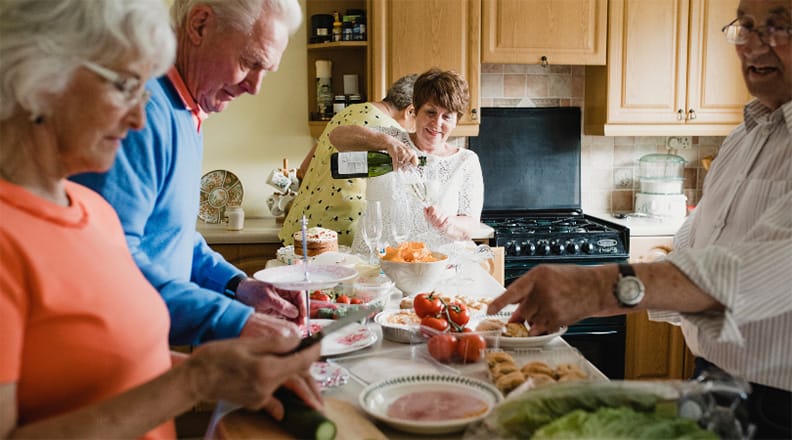Tea and Toast Syndrome: What is it, Symptoms, and How to Prevent

Tea and toast syndrome is a type of malnutrition observed in older individuals who lack the ability to prepare nutritious meals for themselves and instead rely on simple foods such as tea and toast.
Tea and toast syndrome sounds quaint, but it is a real condition that can put seniors at risk for malnutrition. A person experiencing tea and toast syndrome will limit their diet due to a variety of reasons including a lack of desire to eat, inability to prepare proper meals, trouble chewing or swallowing, limited funds, or difficulty getting food into the house. It is especially common in those who live alone.
If you notice a loved one seemingly unable to prepare meals for themselves, contact Crossroads Hospice & Palliative Care via the channels in the green bar above to receive a thorough assessment from an expert.
Symptoms of malnutrition in the elderly.

Over time, elderly people with tea and toast syndrome begin to lose weight, their liver and kidney function may be affected, chronic illnesses become worse, and blood pressure drops leading to the risk of falls. Other symptoms of malnutrition in the elderly may include:Unexplained weight loss
- Unexplained weight loss
- Muscle weakness
- Fatigue
- Constipation
- Dizziness, falls, or fainting
- Peptic ulcers
- Gastritis
- Pale skin
- Slow healing wounds
- Depression
- Memory problems
- Anemia
- Weak immune system

How to prevent malnutrition in the elderly.
If a loved one is losing weight or mentions skipping meals, it’s time to ask more specific questions about what they are actually eating and how often. Ideally, spend some time with them during meals to get a sense of their habits. Are they throwing away food? Are they eating the same meal over and over? These are important things to know, and they may not tell you themselves.
Check their cupboards and refrigerator to make sure they have healthy meal options. Peanut butter, fruit, and cheese are good ways to add extra nutrients to meals. If they have trouble chewing, make sure they have easy-to-swallow meal options or a blender to help blend things up into soups and smoothies.
If you see any signs of poor nutrition, make sure their physician is informed so you can work to determine the cause and solutions together. Ask if any medication could be causing a loss of appetite or whether it would be helpful to stock their pantry with meal replacement shakes. Meals on Wheels can also be set up to deliver nutritious meals to your loved one’s home.
Palliative care can also be an excellent support option for seniors who are experiencing weight loss along with other serious chronic illnesses. With regular visits from a nurse practitioner and a social worker, they can help be an extra set of eyes and ears in the home to make sure there aren’t hidden medical, environmental, social, or financial issues at play.
To learn more about the benefits of palliative care, please call Crossroads Hospice & Palliative Care at 1-888-564-3405.
If you found this information helpful, please share it with your network and community.
Copyright © 2022 Crossroads Hospice. All rights reserved.




